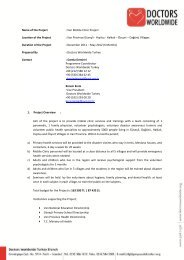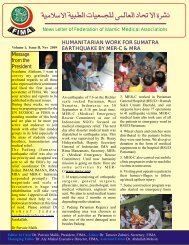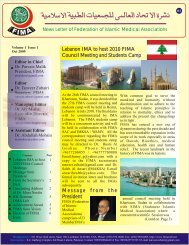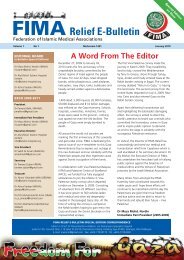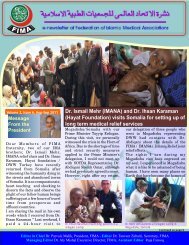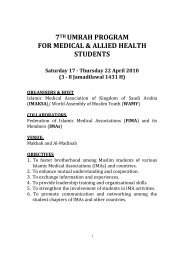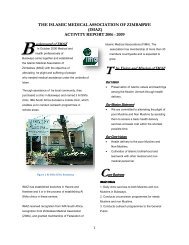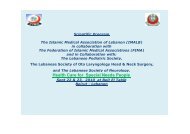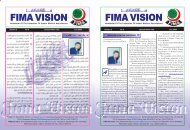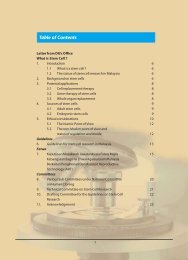FIMA Year Book 2009 - Federation of Islamic Medical Associations
FIMA Year Book 2009 - Federation of Islamic Medical Associations
FIMA Year Book 2009 - Federation of Islamic Medical Associations
Create successful ePaper yourself
Turn your PDF publications into a flip-book with our unique Google optimized e-Paper software.
Editorialfamous. So it is clear that the talents are there but Muslim countries do nothave the infrastructure to nurture and support the young scientists to makethem productive. The authors then submit a stepwise plan to correct thisglaring deficiency . This should be based on inculcation <strong>of</strong> research culture inthe medical students and the inculcation <strong>of</strong> <strong>Islamic</strong> values that propelled theadvancement in the early <strong>Islamic</strong> era. The suggested strategy includes, amongmany others, the following :1.establishing endpoints that is respectable research output from Muslimcountries.2. establishing Muslim medical institutions which include SPIRAL integration<strong>of</strong> research and <strong>Islamic</strong> values with medical curricula. Students have to learnresearch as a standard subject not as an option or area <strong>of</strong> interest.Clearly, such efforts cannot succeed without commitment <strong>of</strong> the government.This means more financial support, and ensuring the independence <strong>of</strong> theuniversities. Funding can also be provided by private sources. I can add thatin the Gulf countries there is a movement in that direction. A University <strong>of</strong>Science and Technology has been established in <strong>2009</strong> as well as stem cellresearch centers in Jeddah and Riyadh, Saudi Arabia. New modern researchcenters have been established in Qatar, and in United Arab Emirates. Hopefullythis trend will continue and expand in other fields <strong>of</strong> medicine and to otherArab and Muslim countries. (4-7)As mentioned by Dr Hassan et al it is important to inculcate research culturein the medical curriculum. This should not stop there. Residents in trainingshould be asked to participate in research either basic or clinical. Facultymembers should be required to initiate meaningful research . They should besupported by their medical schools financially and by giving them dedicatedtime for research. Private practitioners can and should perform clinical research.Dr Faroque Khan in his article stresses that . He gives examples <strong>of</strong> his ownexperience as well as several other clinicians who made important discoveries.All that is needed is scientific curiosity, astute observation, persistence, andI may add hard work.In my article in this issue “ Ethics <strong>of</strong> Clinical Research: An <strong>Islamic</strong> Perspective”I reiterate the glorious history <strong>of</strong> research in the early <strong>Islamic</strong> period and thatIslam exhorts us to pursue learning and research. Then I draw attention tothe pitfalls that may occur while conducting clinical research i.e. dishonestyin reporting results or abuse <strong>of</strong> the research subjects. Unfortunately thesestill happen. Ethical principles have been articulated by the World <strong>Medical</strong>Association in 1964 at a meeting in Helsinki, Finland; the Declaration <strong>of</strong> Helsinki.<strong>FIMA</strong> <strong>Year</strong><strong>Book</strong> <strong>2009</strong>XII




